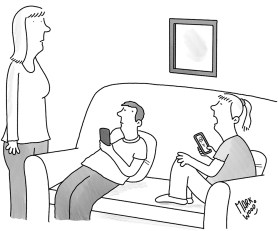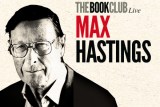
I must say that my feelings about the 1980s American rock band the Bangles were – unusually for me – moderate. I loved some of their hits while being left cold by others. They were pleasant. But after reading this book’s press release, I realised how sorely lacking in appreciation of their impact I’d been:
It’s a story of the challenges faced by women attempting to follow their artistic dreams in a media and music industry ecosystem which seemed set up for their failure from the start… It is a long overdue corrective that restores the Bangles to their rightful place in music history as feminist trailblazers… As Debbi Peterson herself notes: ‘It’s about time that our true story was told. People only see certain aspects of the Bangles, especially as the media has twisted the past, and we have been misrepresented for a long time.
The saying ‘Writing about music is like dancing about architecture’ might generally be true; but skilful writers can at least make their words prance and spin in imitation of music. Jennifer Otter Bickerdike’s book is like number-crunching about alchemy. Though never intentionally amusing, the Pooteresque tenor of the writing can be so. Imagine the Bangles’ shimmery, dreamscape sound. Now imagine the opposite. No banal supposition, no tiny detail of their lives is missed in the early chapters. We are even asked to imagine that a band member’s enjoyment of long car rides with her immediate family to visit relatives in different states was ‘possibly training her for future life as a touring musician’.
A biography without bitching is like a Bloody Mary without Tabasco, and luckily Susanna Hoffs soon joins the Peterson sisters’ combo. She couldn’t help being beautiful, whereas the original group were just ordinary attractive girls. If you don’t want the attention and hassle that good looks bring, as well as the added success and publicity, it’s probably best not to ask a beauty to join your group.
Something that soon becomes obvious is that although the backing Bangles (as I can’t help but think of them) look like stoic worker bees, they are in fact downer divas. A manager of the Runaways referred to a Bangle who was briefly in his band as ‘always having a migraine’. Another Bangle boasted that, unlike her school mates, she didn’t fritter her time away ‘going to parties, getting drunk and throwing up’. Yet another suffered ‘a pretty serious depression’ while trying to decide between college and a music career. A laugh a minute they were not.
But soon the group really had something to moan about. It wasn’t the press who stirred up some imaginary bitch fights between loving mates. Here it is in their own words. Mind you, Hoffs can be pretty annoying as she gloats: ‘I don’t think that the rebel streak of “I’m going start a band” would have happened had I not been raised by my artsy mom and free-thinking dad’ – ignoring all the offspring of labourers and wage slaves who basically invented rock’n’roll. Still, she certainly fits in with the moneyed brats who’ve colonised it these days.
The revamped Bangles quickly made it big time. But by album two, Debbi felt ‘suicidal’ about the choice of producer, and the producer himself was ‘depressed… my life was totally screwed up’. There’s something quite comical about hearing the cute little Bangles tracks of the time – ‘Walk Like an Egyptian’ was one – and discovering that there was all this misery going on in the course of their creation. Apparently the way Hoffs moved her eyes from side to side for about ten seconds at the 2.47 mark during the Egyptian video made the others particularly angry.

The more successful the Bangles became (the album in question goes multi-platinum and gets rave reviews), the unhappier they seemed. Generally this was due to the old saw ‘Be careful what you wish for lest you get it’ , but specifically because none other than Prince in his pomp happened by with his limp little ditty ‘Manic Monday’ and his fancy for Hoffs.
As the gossip columns and pop press increasingly saw Hoffs as top girl, the gloves were really off. A devoted advocate of therapy, Hoffs starred in a film directed by her mother for a laugh. Her bandmates reacted like Horrified of Hollywood. Vicki Peterson harrumphed: ‘I read the script and I couldn’t believe it was getting made… it’s cringeworthy when a woman directs her daughter to dance in her underwear.’ The critics didn’t approve either: ‘Grotesque in the Aids era… borders on child abuse… a teen flesh spectacle.’
Then in 1989 Hoffs had the outright cheek to write the Bangles’s best song ever, ‘Eternal Flame’. It reached number one in nine countries, far outselling their previous hits. But no good deed goes unpunished, and for the other three band members this was the last straw. Even the fan club president became sick with ‘stress’, while Hoffs herself walked around with ‘a knot in my stomach and a bottle of Pepto-Bismol in my pocket’.
It’s a relief when they break up shortly after their greatest hit and best song – and very amusing that, after all that blather about not being taken seriously, they reunited in 1998 to contribute a song called ‘Get the Girl’ (sample lyric: ‘When I saw you/Every single part of me said/Yeah, yeah, yeah/My lips wanted to, you know/Lose control’) to the soundtrack of the gloriously unserious film The Spy Who Shagged Me.
Hoffs and the two Peterson sisters are still together, but not troubling the charts overmuch. Having had only pleasant feelings about them at the beginning, I finished the book thinking what a load of misery-buckets they were, and I can’t imagine it will gain them any new fans, let alone cheer their dwindling followers. If you do a thing you love for a living, don’t moan about it. It’s a lousy attitude, and makes for an even lousier read.








Comments